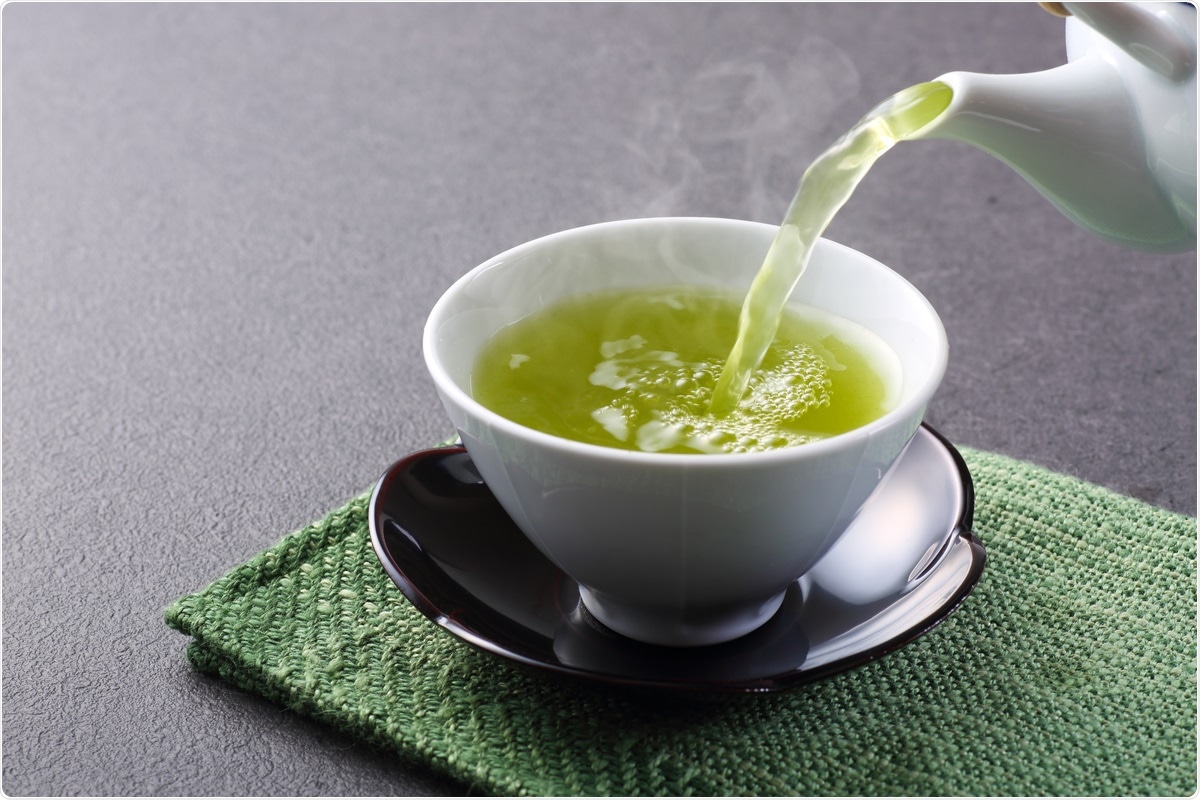
Curious in regards to the distinction between matcha green tea powder and green tea? Though these two drinks share a number of commonalities—corresponding to the truth that they’re each derived from the Camellia sinensis plant—they’re certainly two distinct drinks.
Matcha and inexperienced tea have totally different taste profiles, cultivation and preparation strategies, and even well being advantages. Many tea drinkers take pleasure in each inexperienced tea and matcha tea, whereas others have a choice between the 2. Uncover the variations between matcha powder and inexperienced tea, and be taught which can greatest fit your wants.
Taste of Matcha Tea vs. Inexperienced Tea

Each inexperienced tea and matcha powder could also be described as having a grassy, earthy, or vegetal style. Nonetheless, the similarities finish there.
Inexperienced tea is gentle, delicate and contemporary. Relying on the way it has been processed and any herbs or botanicals which were added, inexperienced tea could style floral, fruity, or nutty. It would function notes of honey, jasmine, peach, citrus, ginger or different aromas.
Matcha tends to have a richer, extra intense taste. It’s typically blended with milk and sweetener to create matcha lattes, so many tea drinkers affiliate matcha with a frothy, velvety texture and candy style.
Historical past of Matcha Tea vs. Inexperienced Tea
Inexperienced tea and matcha powder share comparable origin tales. Each teas are cultivated from the Camellia sinensis plant, which may be traced again practically 5,000 years to historical China when it was found by Emperor Shen Nung.
For tons of of years inexperienced tea was thought of a treasured drugs that was solely out there to essentially the most elite members of society. Round 800 A.D. through the Tang Dynasty, a Chinese language man named Lu Yu revealed a e book titled The Traditional of Tea. This was the primary publication documenting the artwork and tradition of inexperienced tea in China.
Through the Music Dynasty, Buddhist monks started crushing inexperienced tea leaves right into a tough powder and mixing it with sizzling water in a bowl. The Zen monk Eisai introduced this apply to Japan, the place it was later adopted by Samurai warriors. Their pre-battle tea traditions finally advanced into what’s now often known as the standard Japanese tea ceremony.
Cultivation of Matcha Tea vs. Inexperienced Tea
Though matcha tea and inexperienced tea are each derived from the identical plant, they’re cultivated and processed in a different way. As much as 80% of the world’s inexperienced tea comes from China, whereas most matcha is cultivated in Japan.
Basically, inexperienced tea is grown within the solar and matcha is shade-grown through the closing weeks earlier than harvest. The shade will increase chlorophyll ranges within the tea leaves and turns them darker.
Inexperienced tea could also be processed utilizing both artisanal strategies (sun-drying, basket-firing, or pan-firing) or fashionable strategies (oven-drying, tumbling, or steaming). This banishes any bitter elements and preserves the tea’s pure flavors.
Matcha inexperienced tea leaves are destemmed and deveined after which steamed shortly after harvest to halt oxidation. This offers matcha its sensible emerald coloration. Lastly, the leaves are stone-ground right into a effective, brilliant inexperienced powder.
Preparation of Matcha Tea vs. Inexperienced Tea
Matcha inexperienced tea is ready by mixing roughly one teaspoon of matcha powder with sizzling water. Historically, a bamboo whisk is used to take away any clumps and mix the combination right into a uniform consistency. You might also use an electric frother to whisk the matcha. To make a matcha inexperienced tea latte, merely add steamed milk and your most well-liked sweetener.
Comparatively, steeping inexperienced tea is sort of easy. Fill a kettle with contemporary, chilly, filtered water and warmth to simply in need of boiling. Pour the new water over the tea bag or tea leaves, and steep in response to bundle directions—often round one to 3 minutes. Take away the tea bag or diffuser and revel in sip by sip.
Well being Advantages of Matcha Tea vs. Inexperienced Tea
The Camellia sinensis plant is thought for its myriad wellness advantages,* so matcha tea and inexperienced tea share many similarities on this regard. Nonetheless, because of their distinctive cultivation, processing, and preparation strategies, the 2 teas boast barely totally different well being advantages.
Each sorts of tea comprise antioxidants, polyphenols, and a singular amino acid referred to as L-theanine. Matcha powder and inexperienced tea have been utilized in conventional therapeutic for hundreds of years, and at present they’re generally used throughout cleanses and detoxes.
When making ready inexperienced tea, the leaves are steeped in sizzling water to permit the essence of the tea to be absorbed by the liquid. When the leaves are faraway from the water, among the vitamins are eliminated as nicely. With matcha, the bottom tea leaves are totally ingested. This implies the entire vitamins—and caffeine content material—is consumed.
Moreover, matcha inexperienced tea could comprise wherever from three to 10 instances the amount of antioxidants contained in normal inexperienced tea. Additionally it is full of catechin or EGCg, one of the vital highly effective sorts of antioxidants. That is largely as a result of shade-grown cultivation and processing strategies.
Inexperienced tea incorporates roughly half the caffeine content material of black tea, and 1 / 4 the caffeine of espresso. Matcha inexperienced tea incorporates barely extra caffeine—round half the quantity per cup compared to espresso.
Matcha powder and inexperienced tea have a lot in widespread, however because of variations in cultivation, processing, and preparation, every selection affords its personal distinctive taste profile and well being advantages. We advocate attempting each sorts of tea to be taught your preferences.
*These statements haven’t been evaluated by the Meals and Drug Administration. This product just isn’t meant to diagnose, deal with, remedy or stop illness.




